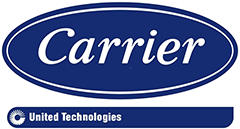Product market analysis helps businesses understand market trends, customer behavior, and competition, enabling them to make informed decisions, refine product offerings, and drive growth.
Retail environments are filled with numerous competing products, making it challenging for Organisation to distinguish their offerings from those of competitors. Manual comparison and product recommendations are often inefficient and ineffective. Our solution aims to streamline this process by leveraging computer vision to automatically identify competitor products and suggest client products, enhancing competitive positioning and increasing sales opportunities.

Our computer vision application will analyze images of products captured in retail stores, identify competitor products, and provide recommendations for equivalent or superior client products. By automating the identification and recommendation process, the app helps clients make informed decisions on product placement and promotional strategies, ultimately improving their market competitiveness.
Solution features:
Competitor Product Identification, Client Product Recommendations, Retail Integration, Capture Shelf Space Percentage, SKU/Pack Size Strategy
Target users: Retail Marketing team
Solution impact:
- Enhanced Product Matching
- Improved Sales Opportunity
- Data Driven Insights
Unlocking Insights for Business Growth

Understand the importance of product market analysis and how it lays the foundation for informed decision-making, innovation, and growth in a competitive marketplace.

Learn how to uncover and analyze current and future trends that impact your industry, helping you stay ahead of the curve and position your products for success.

Explore methods for gathering and analyzing data on customer preferences, needs, and buying habits to tailor your product offerings effectively.

Evaluate the strengths and weaknesses of your competitors, identify market gaps, and discover opportunities to differentiate your products.

Utilize SWOT (Strengths, Weaknesses, Opportunities, Threats) analysis to assess your product’s potential in the market and strategize for success.

Learn how to segment your market to target specific customer groups, ensuring that your product resonates with the right audience.

Use historical data and market insights to predict future demand, helping you prepare for changes in consumer behavior and optimize your product launch strategies.

Understand how market analysis helps you identify potential risks and challenges, allowing you to develop strategies that minimize uncertainty and maximize success.
Product Market Analysis: Key Insights for Growth
A concise evaluation of market trends, customer needs, and competition to guide strategic business decisions and enhance product performance.
Market Trends Identification
Customer Insights
Competitive Landscape Evaluation
Demand Forecasting
SWOT Analysis
Market Segmentation
Real-World Impact of Product Market Analysis
Product market analysis empowers businesses by providing data-driven insights to optimize product positioning, enhance marketing strategies, uncover new opportunities, and gain a competitive edge. It helps companies mitigate risks and make informed decisions for sustained growth and market success.
Empowering Data-Driven Decisions
Leverage the power of detailed market analysis to make smarter, evidence-based decisions. Companies that incorporate market insights into their decision-making process experience greater success in launching and refining products.
Enhanced Product Positioning
With a clear understanding of market dynamics, businesses can strategically position their products to meet customer needs more effectively, leading to increased customer satisfaction and loyalty.
Optimizing Marketing Strategies
Product market analysis provides invaluable data that helps tailor marketing strategies, ensuring the right message reaches the right audience at the right time, ultimately driving better results.
Identifying Untapped Market Opportunities
By analyzing market gaps and emerging trends, companies uncover new opportunities for growth, whether by launching innovative products or entering new geographic markets.
Improving Competitive Advantage
Businesses gain a comprehensive view of their competitors’ strengths and weaknesses, allowing them to differentiate themselves and develop strategies that outperform rivals in the marketplace.
Mitigating Risks and Uncertainty
A thorough market analysis reduces the risk of market failures by providing businesses with actionable insights into potential challenges and risks, allowing for more effective risk management strategies.
In-Depth Product Market Analysis for Strategic Growth
A comprehensive product market analysis helps businesses understand market dynamics, consumer behavior, and competition. By leveraging this analysis, companies can refine their strategies, identify growth opportunities, and stay competitive in an ever-changing market landscape.
Our Clients
FAQ's
Product Market Analysis involves studying the market dynamics, customer behavior, competitors, and industry trends to determine the potential success of a product. It helps identify the demand, pricing strategies, target audiences, and competitive landscape for the product.
Product Market Analysis helps businesses understand market demand, pinpoint customer needs, and assess competition. It minimizes risk by guiding product development, marketing strategies, and overall business decisions to ensure the product aligns with market demands.
The key components include market research (customer needs, segmentation), competitive analysis (competitors' strengths and weaknesses), trend analysis (market developments), and pricing strategy (optimal price points based on demand and competition).
Conducting a Product Market Analysis involves several steps: identifying the target market, analyzing competitors, gathering customer feedback, studying market trends, and assessing the product’s viability in the market through surveys, interviews, and data analysis.
The insights gained from Product Market Analysis directly impact product development by guiding decisions on features, design, and positioning. It helps businesses align their products with customer expectations, ensuring higher chances of success in the market.
Product Market Analysis should be an ongoing process. It should be revisited periodically, especially before launching new products or entering new markets, or when there are significant shifts in consumer behavior or market trends. Continuous analysis helps businesses stay relevant and adapt to market changes.






























